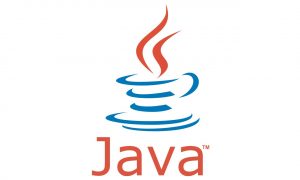A StackOverflowError is a runtime error in Java that occurs when the call stack exceeds its limit. This usually happens due to deep or infinite recursion where a method calls itself too many times without a terminating condition.
What is the Call Stack?
The call stack is a special area in memory that tracks active methods from the point where the method is called to where it returns. Each time a method is invoked, a new frame is added to the top of the call stack. When the method finishes execution, its frame is removed from the stack. If a method keeps calling itself recursively without an exit condition, it leads to stack overflow because the stack gets filled with method call frames.

Example of StackOverflowError
Infinite Recursion Example
Here’s a simple example of infinite recursion that leads to a StackOverflowError:
public class StackOverflowExample {
public static void main(String[] args) {
recursiveMethod();
}
public static void recursiveMethod() {
// Infinite recursion: no terminating condition
recursiveMethod();
}
}When you run this code, you will get a StackOverflowError because recursiveMethod keeps calling itself indefinitely.
How to Avoid StackOverflowError
To avoid StackOverflowError, ensure that your recursive methods have a well-defined base case or terminating condition. Here’s an improved version of the above code:
Corrected Recursion Example
public class StackOverflowExample {
public static void main(String[] args) {
recursiveMethod(5);
}
public static void recursiveMethod(int n) {
if (n == 0) {
// Base case: terminate recursion
return;
}
// Recursive call with a decrementing argument
recursiveMethod(n - 1);
}
}In this version, the method recursiveMethod has a base case (if (n == 0)), which stops the recursion when n reaches 0.
Practical Example: Factorial Calculation
Factorial calculation is a common example where recursion is used. Here’s how to calculate factorial using recursion, ensuring no StackOverflowError:
public class FactorialExample {
public static void main(String[] args) {
int number = 5;
System.out.println("Factorial of " + number + " is: " + factorial(number));
}
public static int factorial(int n) {
if (n == 0) {
// Base case: 0! is 1
return 1;
}
// Recursive case
return n * factorial(n - 1);
}
}Common Scenarios Leading to StackOverflowError
- Deep Recursion without Base Case: As shown in the infinite recursion example.
- Indirect Recursion: When methods call each other in a cycle.
public class IndirectRecursionExample {
public static void main(String[] args) {
methodA();
}
public static void methodA() {
methodB();
}
public static void methodB() {
methodA();
}
}In the above example, methodA calls methodB, and methodB calls methodA back, leading to a cycle that causes a StackOverflowError.
Diagnosing StackOverflowError
When a StackOverflowError occurs, the JVM prints the stack trace, showing the sequence of method calls that led to the error. Here’s how you can analyze it:
- Identify Recursion Points: Look for repeated method calls in the stack trace.
- Check for Base Cases: Ensure that your recursive methods have terminating conditions.
- Reduce Stack Depth: In cases where deep recursion is unavoidable, consider converting the recursion to iteration.
Handling StackOverflowError
In practice, handling StackOverflowError directly is not common because it indicates a bug in the code. Instead, the focus should be on writing correct recursive methods and using iterative solutions when appropriate. However, you can catch it using a try-catch block if needed:
public class HandleStackOverflowExample {
public static void main(String[] args) {
try {
recursiveMethod(5);
} catch (StackOverflowError e) {
System.err.println("StackOverflowError caught: " + e.getMessage());
}
}
public static void recursiveMethod(int n) {
if (n == 0) {
return;
}
recursiveMethod(n - 1);
}
}Conclusion
A StackOverflowError is a critical error indicating that the stack space has been exhausted, usually due to uncontrolled recursion. By ensuring that recursive methods have base cases and by being cautious of indirect recursion, you can prevent this error. When necessary, converting recursion to iteration is a practical solution to avoid deep call stacks.





